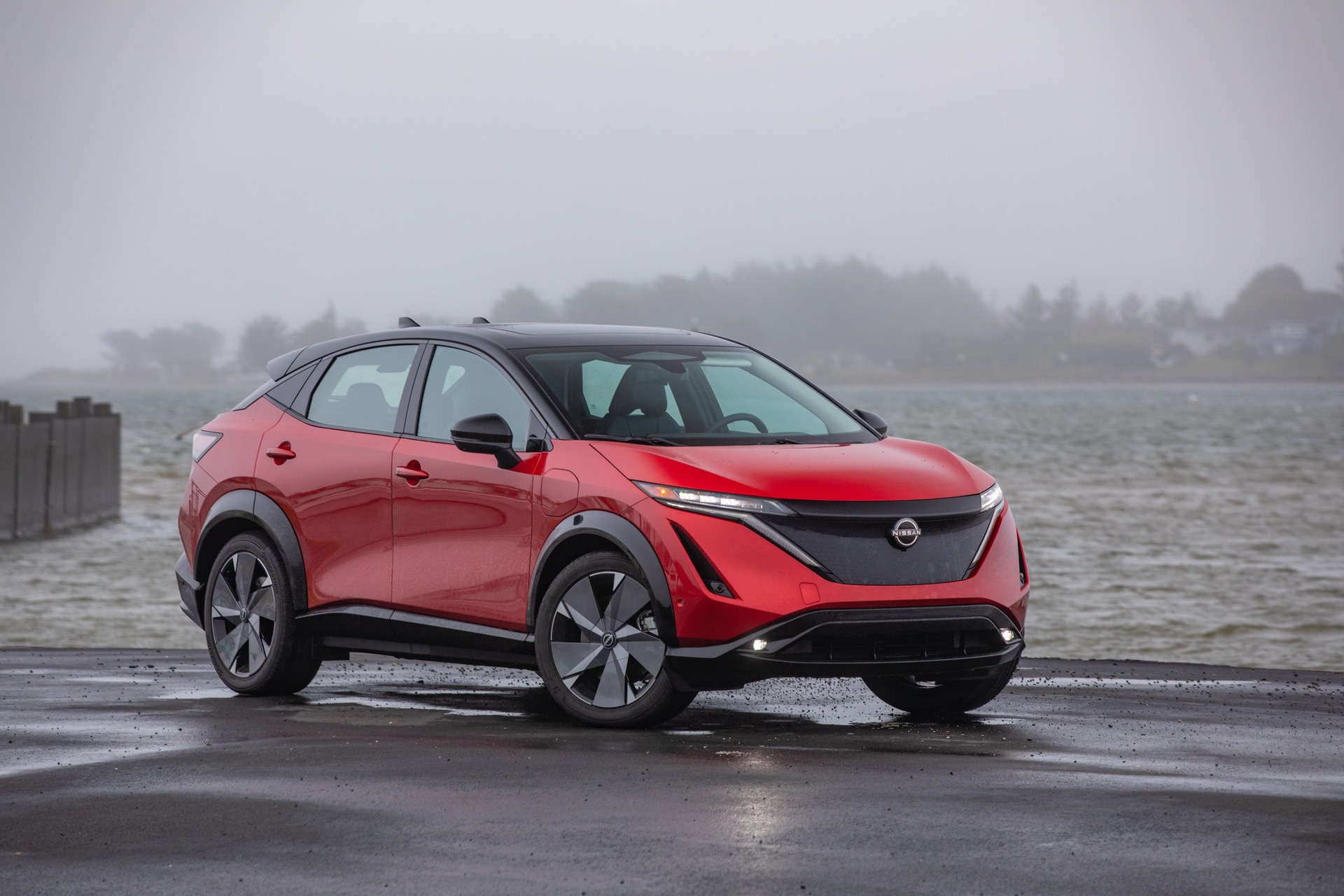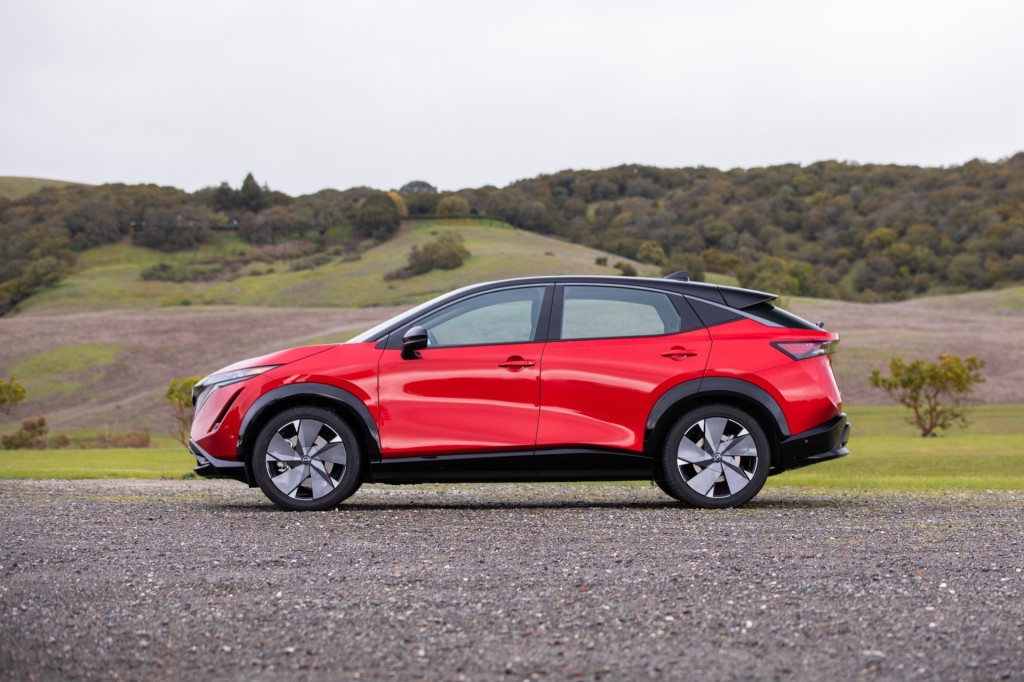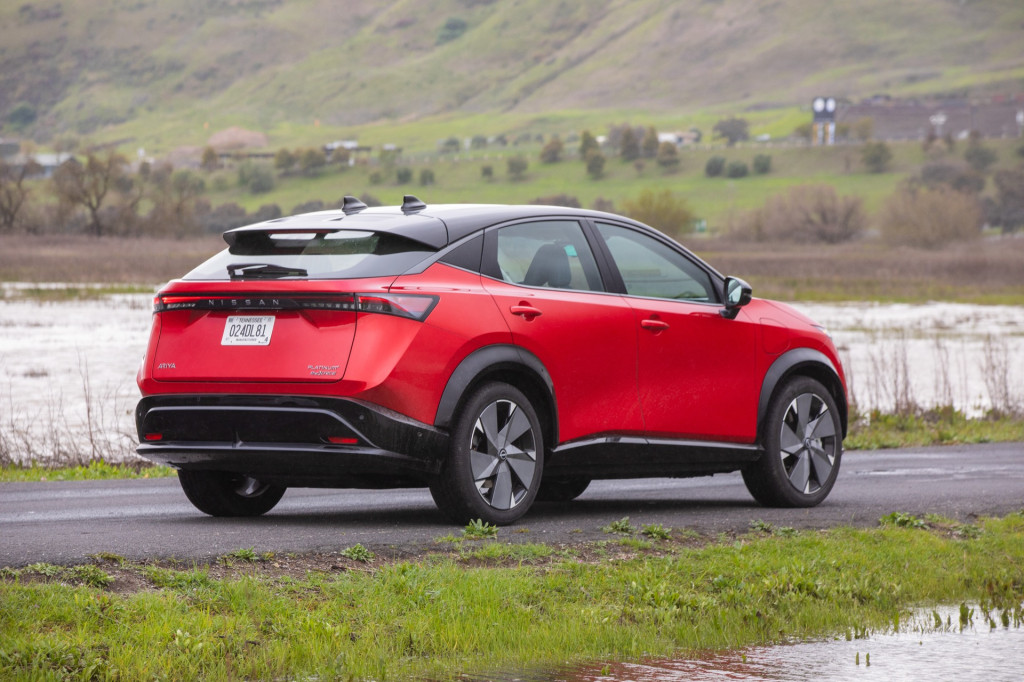

Nissan Ariya recalled for something EVs rarely have: An oil leak
Nissan is recalling a small number of 2023 Ariya electric SUVs for an issue that rarely affects EVs: an oil leak.
The recall includes just 84 vehicles, but all are thought to have damaged O-rings in their motor assemblies that can lead to oil leaks within motors, “causing abnormal wear and debris,” according to the National Highway Traffic Safety Administration (NHTSA).
A mixture of debris and oil can build up, causing the vehicle to enter a “fail-safe” mode that may result in reduced power.
It’s unclear whether this issue would also lead to the spots on the driveway or garage floor that are all too common from internal-combustion vehicles. Gasoline engines with internal oil leaks can sometimes burn the excess, creating higher exhaust emissions, but that obviously isn’t the case here.

2023 Nissan Ariya e-4orce
The affected vehicles were built between May 30, 2022, and February 27, 2023, according to recall documents. No other vehicles are thought to be affected by this issue.
Owners will be notified of when to take their vehicles to dealerships, where the front motor assembly will be replaced, free of charge. That process can take up to 10.5 hours, however.

2023 Nissan Ariya e-4orce
While they may not require oil changes under normal circumstances, many EV motors are oil-cooled—like all of those used in General Motors’ Ultium family. The supplier Mahle in 2022 showed what it said was a “wear-free” motor, also including integrated oil cooling.
Several years of Consumer Reports data have backed up the claim that EV motor assemblies are generally less expensive to maintain than internal-combustion engines, with Consumer Reports consistently finding that EVs and plug-in hybrids cost less to maintain and repair. Recent data appears to contradict that, showing that plug-in cars are more trouble-prone and that hybrids are better. But recalls requiring labor-intensive remedies like this one are far from the norm for EVs.
Add a comment Cancel reply
Comments (0)
Related posts


Electric SUVs: Top 6 Models for Family Trips










